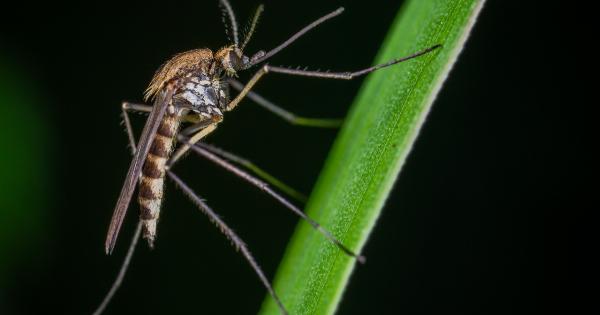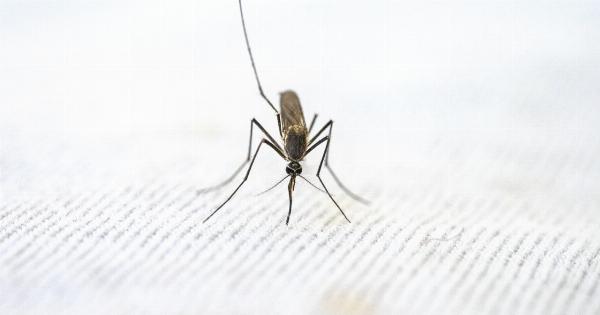Mosquitoes are not just annoying pests that leave itchy bites; they can also transmit diseases. While chemical mosquito repellents are effective, they often contain harmful ingredients that can be toxic to humans and the environment.
Thankfully, there are natural ways to keep mosquitoes at bay without resorting to these chemically-laden options. In this article, we will explore simple and effective methods of natural mosquito control that you can employ to enjoy your outdoor spaces.
1. Remove Standing Water
Mosquitoes breed in stagnant water, so eliminating any standing water sources around your home is crucial. Regularly empty flower pots, birdbaths, buckets, and any other containers that may collect water.
Ensure that your gutters are clean and free from debris, as clogged gutters can create breeding grounds for mosquitoes. Additionally, fix any leaking faucets or pipes as even small amounts of water can attract these pesky insects.
2. Use Mosquito-Repelling Plants
Nature offers several plants that naturally repel mosquitoes. Planting these in your garden or keeping them indoors can create a natural barrier against these pests. Some of the most effective plants include:.
- Lemon Balm
- Lavender
- Citronella Grass
- Marigolds
- Basil
- Peppermint
These plants not only repel mosquitoes but also add beauty and fragrance to your surroundings.
3. Use Essential Oils
Essential oils derived from certain plants have mosquito-repellent properties. You can make your own natural mosquito repellent by mixing a few drops of essential oil with a carrier oil such as coconut oil or almond oil.
Some commonly used essential oils include:.
- Lemon Eucalyptus Oil
- Peppermint Oil
- Citronella Oil
- Lavender Oil
Apply the mixture to your exposed skin before heading outdoors, ensuring you do a patch test first to check for any sensitivities. These essential oils not only repel mosquitoes but also have pleasant scents that keep you feeling refreshed.
4. Install Mosquito Nets
Mosquito nets are a simple yet effective way to keep mosquitoes away while you sleep. Install nets on windows and doors to prevent these pests from entering your home.
You can also use mosquito nets over your bed or while camping to create a protective barrier between you and the mosquitoes.
5. Maintain a Clean and Tidy Yard
Regularly mow your lawn and trim shrubs and bushes. Mosquitoes tend to rest in tall grasses and vegetation during the day, so keeping your yard well-maintained reduces their hiding spots.
Additionally, remove any piles of leaves or debris, as they offer potential breeding sites for mosquitoes.
6. Introduce Mosquito-Eating Fish
If you have a pond or water feature in your garden, consider introducing mosquito-eating fish such as Gambusia affinis (mosquito fish) or goldfish. These fish feed on mosquito larvae, effectively reducing the mosquito population in the area.
However, ensure that you provide proper care for the fish and maintain an appropriate environment for them to thrive.
7. Use Fans
Mosquitoes are weak flyers and are unable to withstand strong air currents. Utilize fans on your patios, decks, or other outdoor spaces to create a breeze that keeps mosquitoes away.
The airflow will also help to disperse the carbon dioxide and body heat that attracts mosquitoes.
8. Wear Protective Clothing
When spending time outdoors, particularly during mosquito-active hours (dawn and dusk), wear loose-fitting, long-sleeved shirts and long pants. Opt for light-colored clothing as mosquitoes are attracted to dark colors.
Tuck your pants into your socks and wear closed-toe shoes to further protect yourself from mosquito bites.
9. Make Homemade Mosquito Traps
You can create simple mosquito traps using household items to reduce their population. One effective method is to cut the top off a plastic bottle, invert it, and place it back into the base with a mixture of sugar, water, and yeast.
The carbon dioxide produced by the yeast attracts mosquitoes, and once they enter the trap, they are unable to escape.
10. Consider Natural Insect Repellents
There are natural repellents available on the market that are free from harmful chemicals. Look for products containing ingredients such as neem oil, soybean oil, or lemon eucalyptus oil.
These repellents provide protection against mosquitoes without the potential risks associated with synthetic alternatives.
Conclusion
By following these simple and natural mosquito control methods, you can significantly reduce mosquito populations around your home and enjoy mosquito-free outdoor spaces.
Remember, prevention is key when it comes to managing mosquitoes, so implement these strategies consistently for the best results. With these natural approaches, you can protect yourself, your family, and the environment from the harmful effects of chemical mosquito control methods.





























